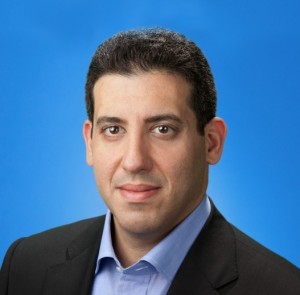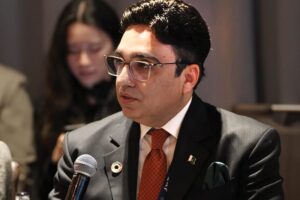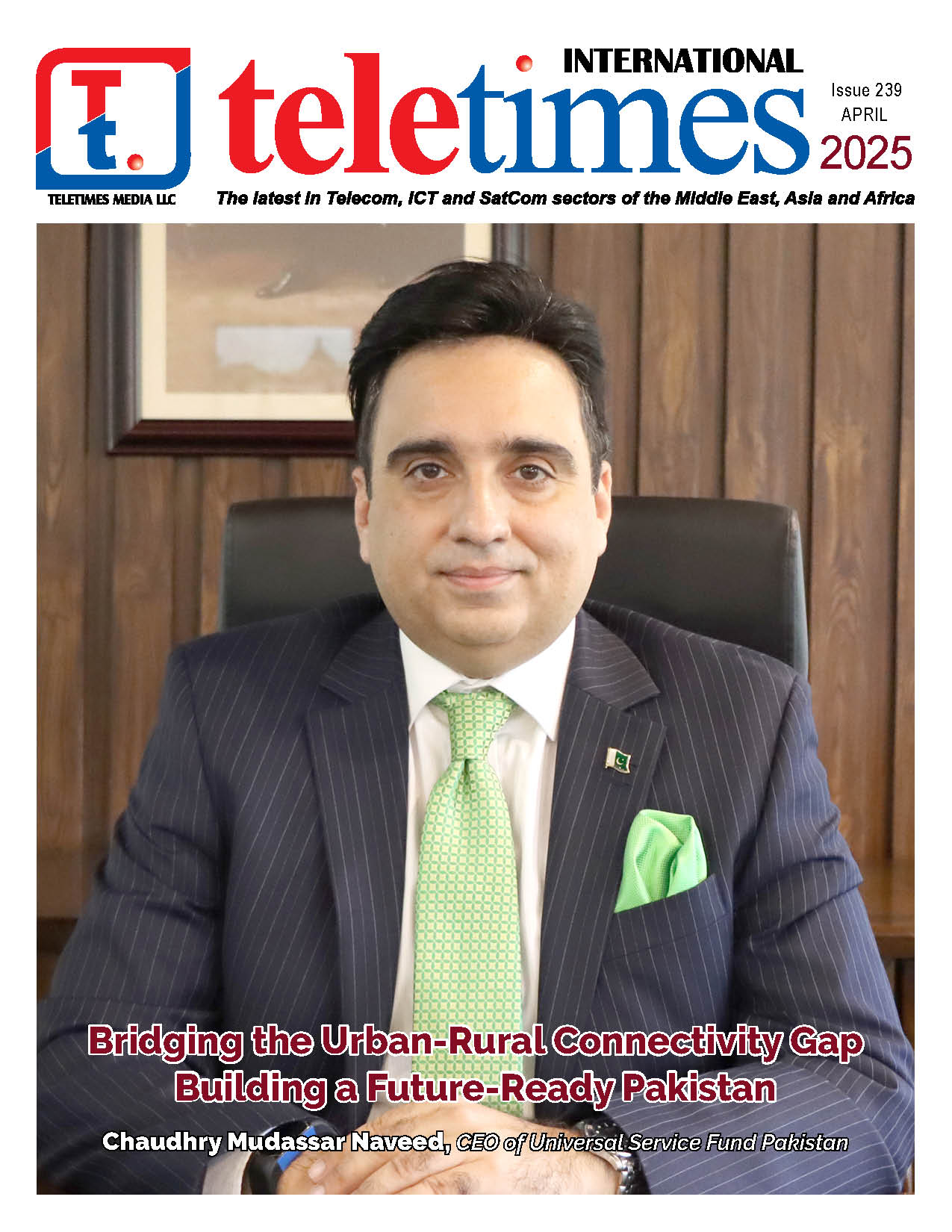
Mohamad Mourad, Gulf Regional Manager
Mohamad Mourad leads Google’s business in the Gulf Region. He has joined Google in 2011 with the mandate to drive Google’s investments, to streamline its business operations and strengthen partnerships with key ICT stakeholders. Prior to joining Google, Mohamad held the position of Principal at Booz & Company, a strategy consultancy, where he led the Middle East region’s Mergers and Acquisitions and New Business Development activities in the Telecommunications, Media and Technology sectors. Prior to joining Booz & Company, he held positions in industry in the capacities of business development and business planning. Mohamad holds an MBA degree from INSEAD in France.
Teletimes – Please tell us about your role at Google Inc.
Mohamad Mourad – I am the Gulf Regional Manager for Google and my mandate is to drive Google’s investments, to streamline its business operations and strengthen partnerships with key ICT stakeholders in the Gulf region.
TT – Tell us about Google MENA?
MM – Google’s Mission is to organize the world’s information and make it universally accessible and useful. We’re investing in the future and that future is based around innovation and execution wherever it may be as long as its falls within our mission.
In the MENA region, Google aims to develop the web and IT ecosystem in which it can positively influence the region’s ongoing social and economic development. We are very active in our developer’s outreach efforts and also in launching local products such as Arabic Voice Search, Driving and walking directions in several MENA countries, and Google+ which was launched in Arabic on the same day of its global launch.
TT – Share with us the more important stats about Google users across the world and in MENA?
MM – Every day there are more than one billion searches on Google for information worldwide and YouTube has more than three billion views per day up 50{e1f18614b95d3cd6e4b3128e1cd15d99b042a60a5a19c19b7a8e07e7495efa10} versus last year. There are more than 90MM users on Google+. In the MENA region KSA has the largest number of search queries, followed by Egypt, Morocco, Algeria and UAE.
TT – Please tell us about the Google Zeitgeist project. What are the latest search trends for Gulf region.
MM – Google Zeitgeist (which means “the spirit of the times) is an annual look into the year’s top Google searches. In compiling the 2011 Year-End Zeitgeist, we studied the aggregation of billions of search queries done over the year.
This year’s fastest rising searches in the UAE show a sustained interest in local content, with ‘Dubai’, ‘UAE’, ‘Emirates’ “Etisalat’ and ‘Dubizzle’ all in the top 25 for the UAE. In Egypt, phrases like ‘Jan 25th Revolution’, ‘Tahrir square’ and ‘Mubarak’s trial’ were all predictably in the top ten, while ‘hafiz’ (a Ministry of Labour website), ‘Al Jazeera’ and ‘Al Arabiya’ all ranked quite high in the Kingdom of Saudi Arabia. These local searches were interspersed with all the usual suspects that pop up around the globe, such as ‘YouTube’, ‘Facebook’ and ‘Twitter’.
TT – How has been the experience with Google+ in your region?
MM – Google+ is the fastest growing social product ever launched–and engagement is phenomenal. So the user base is growing and people are using it across the world in the MENA region. We just announced that on January 19th more than 90 million people have joined Google+. Since announcing the availability of Google+, we’ve been launching at least one new feature a day and it’s also been launched in Arabic since the very first day.
It’s still early days but our goal is to transform the overall Google experience–making it beautifully simple because we understand what you want and can deliver it instantly. This means baking identity and sharing into all of our products so that we build a real relationship with our users.
TT – With so many services and innovations coming up from its platform. What challenges are arriving for Google Inc?
MM – At Google we focus on the user and creating magical experiences for them. Google develops products that change the world and takes time and energy but we’re a big company we ensure enough resources are devoted to high impact products that improve the lives of billions of people.
In the MENA region we want to make the web better, especially creating and increasing locally Arabic content. To help do that we work closely with the local developer’s community and expose our products through our APIs so that developers can create products that we wouldn’t have thought of or might never have created ourselves.
TT – What is the position of Google for Network Neutrality issues?
MM – Google respects copyright–and we’ve worked hard to help rights holders deal with piracy. Last year we took down 5 million infringing Web pages from our search results and invested more than $60 million in the fight against bad ads. Like many other tech companies, we believe that there are smart, targeted ways to shut down foreign rogue websites without asking US companies to censor the Internet”.
On January 18th, we’ve censored the Google Doodle on the US homepage in protest of the Stop Online Piracy Act (SOPA) and the Protect IP Act (PIPA), two bills being considered in the US House and Senate, respectively, that would set a terrible precedent for censorship online.
Also, from time to time we include a link on the Google homepage that points users to important or interesting information, whether it be relief opportunities in the wake of a disaster or awareness of an important issue like SOPA/PIPA. We believe it is important to make our users aware of legislation moving through Congress that would hurt the US economy and require US search engines to censor the Internet.
TT – Does Google have any specific programs to encourage young entrepreneurship?
MM – In terms of encouraging entrepreneurship for the region, Google announced this year a competition called Ibdda with Google in Egypt which aims at finding the country’s most talented tech entrepreneurs and award them with 1.2 million EGP in seed capital to bring their winning business ideas to market. The concept of Ibdda with Google is to inspire entrepreneurs to start their own businesses and become contributors to the society at large using technology as a catalyst for growth and economic prosperity. This was the first time ever Google launches such an initiative which demonstrates the importance of the region to the company. After assessing the success of the project we hope to see it rolled out in other countries in the region.
TT – Android is really changing the smart mobile handset world. What popularity has it taken in the Gulf region?
MM – It’s true. The Android platform is growing exponentially, it’s actually the most popular smartphone operating system in the world. 200 Million devices are activated globally, and 700,000 devices activated daily globally.
Given that mobile penetration in this region is amongst the highest in the world (87{e1f18614b95d3cd6e4b3128e1cd15d99b042a60a5a19c19b7a8e07e7495efa10} in MENA and 178{e1f18614b95d3cd6e4b3128e1cd15d99b042a60a5a19c19b7a8e07e7495efa10} in GCC, WCIS, 2010), Google sees a lot of potential of growth for Android here.
TT – What are your spending/investment priorities?
MM – We think about our products in three separate categories, and we invest in all of them:
First, there is search and our ads business, the core driver of revenue for the company.
Next, we have products that are enjoying high consumer success–YouTube, Android and Chrome. We are investing in these in order to optimize their long-term success.
Then we have our new products–Google+ and Commerce & Local — that are reshaping the digital landscape. We are beginning to see progress and are investing in them to drive innovation and adoption.
Obviously, we need to balance short-term and with longer-term needs because our revenues and growth serve as the engine that funds our innovation.
TT – Your thoughts about Teletimes International.
MM – It’s a great magazine, which provides interesting and insightful stories to its readers. I’m thanking you for having me with you in this issue.
April 3, 2025







